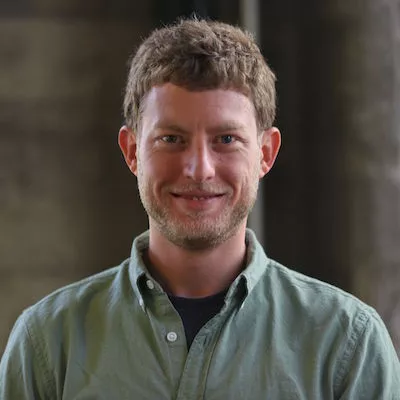It is estimated that over a third of the world’s population lacks access to a reliable power source. Solar energy is seen as one of the smartest solutions. But solar energy companies have been pointing to lack of access to reliable finance as a formidable stumbling block. Enter SunFunder. Founded in 2012, SunFunder is a solar finance startup that raises capital from investors and provides short-term, working capital and project finance loans to solar energy providers. SunFunder started out as a crowdfunding platform and then launched Solar Notes, a private debt product for accredited and institutional investors. SunFunder’s innovative funding solutions are helping solar energy businesses (including manufacturers, developers, and distributors) scale in emerging markets. The title of a recent Forbes article, How SunFunder is Proving to the World that Developing Countries are Great Cleantech Investments, shows the impact that SunFunder is creating in the world today.
SunFunder won a SOCAP Social Entrepreneur Scholarship in 2014 and Co-founder Ryan Levinson has attended the conference for the past three years. We recently sat down with Levinson to discuss the path SunFunder has taken to get where they are today and the ongoing evolution and rapid growth of the company.
SOCAP: In 2011 you left your position as VP of Environmental Finance at Wells Fargo to spend a year traveling in South America, Southeast Asia, and India. You’ve said it was during that trip that you began developing the idea for SunFunder. What spurred the idea for the enterprise?
 Ryan Levinson: I’ve always been interested in solar energy finance. That is what I did at Wells Fargo. When I was traveling I volunteered with an organization working to find solar energy solutions for people who live in areas without access to reliable energy. I was already passionate about the development challenges related to energy access, but when I was in college I looked at it as a kind of charity work. It wasn’t until I began diving into the numbers that it hit me that solar energy in parts of the world that don’t have reliable energy is very economically viable. The numbers actually work better there than in North America or Europe where you are competing with a reliable and affordable electricity grid.
Ryan Levinson: I’ve always been interested in solar energy finance. That is what I did at Wells Fargo. When I was traveling I volunteered with an organization working to find solar energy solutions for people who live in areas without access to reliable energy. I was already passionate about the development challenges related to energy access, but when I was in college I looked at it as a kind of charity work. It wasn’t until I began diving into the numbers that it hit me that solar energy in parts of the world that don’t have reliable energy is very economically viable. The numbers actually work better there than in North America or Europe where you are competing with a reliable and affordable electricity grid.
In North America and in Europe, you need a lot of subsidies and really long financing terms in order to make the numbers work. That’s a big challenge for doing solar energy here. But when you look at India or East Africa, where there isn’t a grid or a highly unreliable grid, you are competing against kerosene or diesel, which is expensive, inefficient, poor quality, not very reliable, and dirty. Solar energy, both for cost and quality reasons, is a much better solution and economically viable, often without subsidies. When you consider both this and the size of the energy access challenge—over two billion people in the world lack access to reliable energy—it shows that there is a great opportunity to solve a big problem in the world. So I started getting to know solar companies in order to better understand their challenges, what is blocking them. The one thing that I heard over and over again is that they lack access to financing. And that is when it all came together – I was a solar finance guy and wanted to start a business. That was when I first thought of starting a specialty finance company just dedicated to financing solar energy in emerging markets.
What inspired SunFunder’s innovative use of crowdfunding?
I was inspired by Kiva, by Kickstarter, by Lending Club. I think those three, and they all have very different business models in terms of what the investors are getting out of it, but all three of them had some elements that were really interesting. I started thinking about crowdfunding for solar when I was at Wells Fargo. We were making really great investments for the bank. And I thought how great it could be if individuals could have the same opportunity to make those kinds of investments.
What were the benefits of the crowdfunding model to SunFunder as a company?
We wanted to follow a lean startup approach to the business, which is all about rapid iteration and learning. To follow a more traditional path on starting a finance company, we would’ve needed to raise a big fund. It can take years to fundraise and to set up the organization to convince risk-averse investors that they can trust you with their money. We didn’t want to spend two years of our lives just fundraising and making a case to investors without actually learning how to do this. So what crowdfunding allowed us to do was to get started quickly. We were able to build a website in a few months and start with a project that was as big or small as we wanted. And we started with a tiny $4K loan to a solar company in the Philippines called Hybrid Social Solutions. A small number but still meaningful impact—we helped 100 people get access to solar lighting and cell phone charging.
It wasn’t too hard to get people to go online and make small $25.00 investments to fund a $4K loan. So we started with a little deal just to see how that works and then do a deal a little bit bigger, and then another deal a little big bigger and see where this thing goes. So we started with that tiny $4K loan, and then did a $10K loan with another solar organization, which was our entrance into the African market. That was with an organization called SunnyMoney who was a great customer for us. We did more and more with them and then a couple more customers and then before we knew it things were moving forward. In that first year we worked with 6 or 7 different solar companies and made about 10 loans. It wasn’t a lot of money. I think we might have in total done a couple of hundred thousand dollars but we started building up a real community online and we were getting some nice press that drew more people to our platform. It was a great way to get started because even though we were doing small dollar amounts, amounts that didn’t do much towards convincing big investors to write multi-million dollar checks, we were learning. We were learning how to structure loan agreements and make loans from the US to organizations in Africa, and developing our due diligence and credit underwriting process—all things that you can do much better if you are actually doing it. So that is really what crowdfunding did for us – it allowed us to move fast and learn.
After developing your crowdfunding platform, the SunFunder team joined an accelerator. Can you describe your process of researching and selecting an accelerator?
We didn’t know for sure that we wanted to do an accelerator. We were trying to raise seed money. The industry we are in now has become quite hot but it wasn’t when we started. It was starting to rev up but making the case to private investors to invest equity in our company was a little more challenging. And to be honest I wasn’t a very good fundraiser early on (laughs). I was a first time entrepreneur.
I was working out of the San Francisco Impact Hub, our team is very international and geographically remote – my co-founders at the time were based in Tanzania and Seattle, and the Hub was a great place for me to work. It was at the Impact Hub where I met Wes Selke and Rick Moss who were recruiting early-stage startups for a new cohort for their accelerator program called Hub Ventures. I got to know Wes and Rick at the Hub and Hub Ventures sounded awesome. I was already part of the community of the Hub and really liked it there – cool group of people doing interesting work – and I liked the vision that Wes and Rick had for their program. I didn’t want to work with an accelerator in which everyone is trying to solve problems that affect only a really small subset of the world or on solutions that aren’t making the world a better place. It was cool to work with other startups that were all working on such important missions. That was why we chose Hub Ventures.
What led you to move away from crowdfunding and towards the creation of an investment product for accredited investors?
After a year and a half or so of crowdfunding we had a thousand investors online, we were making loans that were getting repaid, and we were at a quarter million dollars of money raised. It was working. But we were also starting to meet private investors that were really interested in that opportunity—impact investors who traditionally had done a lot of equity investments who were looking for lower risk, high impact debt opportunities. We thought that this was really how we can fulfill our vision and to show that this sector can be profitable.
By working with private investors through a private debt placement, we could raise debt capital and provide an interest return to investors and really start to show that this can be a true commercial investment opportunity, which was always a big part of our vision. At the same time we would be able to raise more and bigger dollars from a smaller group of investors. We could put less resources into technology and marketing and regulatory work related to crowdfunding and instead put more resources toward developing relationships with solar companies and doing risk assessment on them and structuring, closing and monitoring loans. That was really more tied to our mission. It wasn’t about how we raise money it was more about what we are doing with it.
There are different tools to raising money and we wanted to use the tool that was for us most efficient and scalable and impactful. We believed that creating a financial debt product for accredited investors was a very scalable way to raise bigger dollars. So in 2013 we transitioned to Solar Notes. And that is now our primary source of how we raise the capital we need to make the loans that we make.
“In 2015 we took a huge step forward and closed about $15M of Solar Notes.”
I think that first year we might have done $150,000 in loans through crowdfunding. And then in 2013 we raised half a million total, about half of that was through crowdfunding. Half was through our first private debt placement with Solar Notes. In 2014 we still did a little bit of crowdfunding, but primarily worked on figuring out the Solar Notes. We raised about $1M that year. In 2015 we took a huge step forward and closed about $15M of Solar Notes.
We decided not to get rid of the crowdfunding website because it still is really helpful to do new types of projects that we can’t fund through accredited investors—higher risk projects in new geography or with a new business model, almost like R&D loans. So now crowdfunding is our innovation platform. A lot of our crowdfunding investors look at their zero-interest loans as more of a revolving donation. Accredited investors on the other hand expect and need to get repaid with interest. All of our investors, through crowdfunding and Solar Notes, have been 100% repaid so far. It’s important for us to maintain that track record.
Where is SunFunder now and what are the company’s goals for 2016?
We are growing fast. We’ve now raised over $16M of debt and are planning to raise another $50M in 2016. We’ve made over $7 million of loans to over 20 solar companies, we plan to grow our loan portfolio to over $30M in 2016. We are also now zeroing in on being a financially sustainable business. For us to scale this and have the change we want to make in the world we have to show that we’ve got a profitable business model. So we are also very hard at work to show that through these loans we are earning enough revenue to support our business and to focus on keeping expenses low. We are not there yet, we have raised equity capital to get us to this point and just closed a Series B round. But we are now very zeroed in on the economics of our business. This is what will allow us to have the impact we want to have. To date our loans have helped hundreds of thousands get access to clean, affordable and reliable energy, and at this time next year I want to be talking about millions of people.
MissionHUB is the parent company of Impact Hub SF and SOCAP. MissionHUB’s mission is to help entrepreneurs build sustainable businesses that drive long-term social and environmental good. We are proud to have SunFunder as a member of the MissionHUB community. Are you ready to Put Your Change to Work? Join your nearest Impact Hub coworking campus: San Francisco, Berkeley, New York City, or Washington, D.C.





